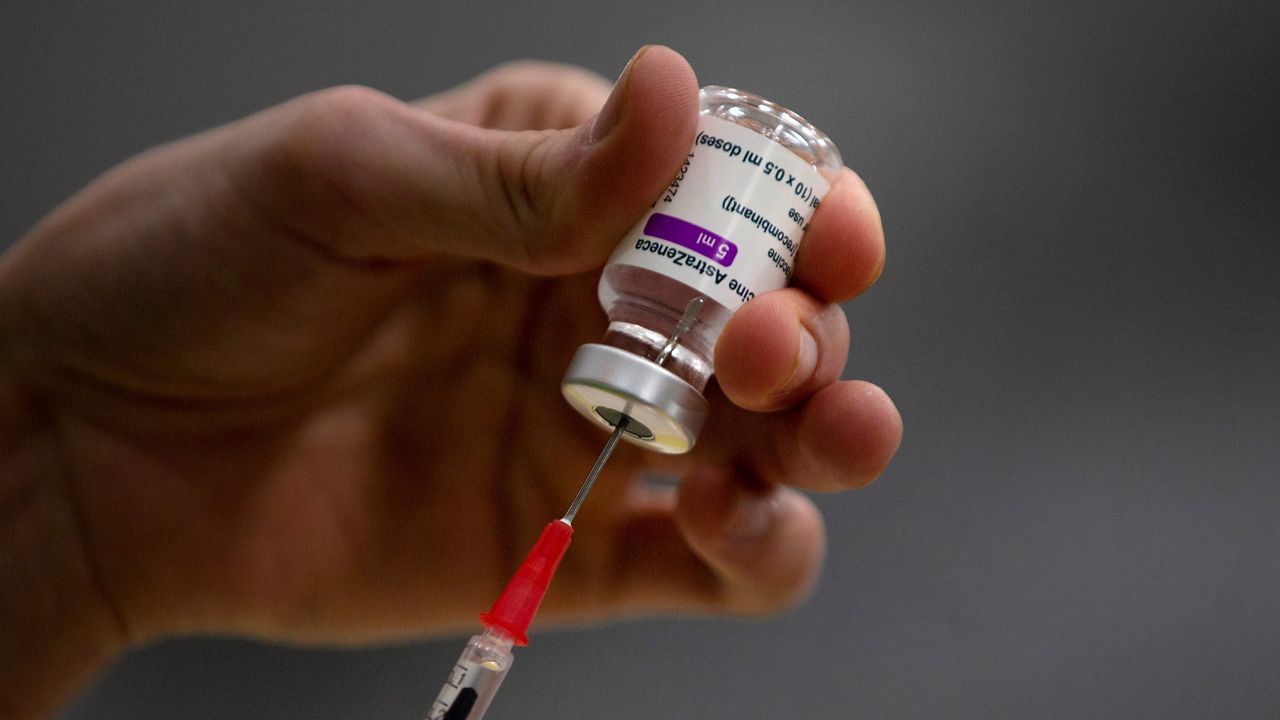Most Americans who haven’t been vaccinated against COVID-19 say they are unlikely to get the shots and doubt they would work against the aggressive delta variant despite evidence they do, according to a new poll that underscores the challenges facing public health officials amid soaring infections in some states.
Among American adults who have not yet received a vaccine, 35% say they probably will not, and 45% say they definitely will not, according to a poll from The Associated Press-NORC Center for Public Affairs Research. Just 3% say they definitely will get the shots, though another 16% say they probably will.
What’s more, 64% of unvaccinated Americans have little to no confidence the shots are effective against variants — including the delta variant that officials say is responsible for 83% of new cases in the U.S. — despite evidence that they offer strong protection. In contrast, 86% of those who have already been vaccinated have at least some confidence that the vaccines will work.
That means “that there will be more preventable cases, more preventable hospitalizations and more preventable deaths,” said Dr. Amesh Adalja, an infectious disease specialist at Johns Hopkins University.
“We always knew some proportion of the population would be difficult to persuade no matter what the data showed, (and) a lot of people are beyond persuasion,” said Adalja. He echoed Centers for Disease Control and Prevention Director Rochelle Walensky in calling the current surge “a pandemic of the unvaccinated” because nearly all hospital admissions and deaths have been among those who weren’t immunized.
The AP-NORC survey was conducted before several Republicans and conservative cable news personalities this week urged people to get vaccinated after months of stoking hesitancy. That effort comes as COVID-19 cases nearly tripled in the U.S. over the past two weeks.
Nationally, 56.4% of all Americans, including children, have received at least one dose of the vaccine, with 48.8% fully vaccinated, according to data from the CDC. White House officials said Thursday that vaccinations are beginning to increase in some states where rates are lagging behind and COVID-19 cases are rising, including in Arkansas, Florida, Louisiana, Missouri and Nevada.
Still, just over 40% of Louisiana’s population has received at least one dose, and the state reported 5,388 new COVID-19 cases Wednesday — the third-highest single-day figure since the pandemic began. Hospitalizations also rose steeply in the last month.
In Alabama, less than 34% of the state's population is fully vaccinated against COVID-19, one of the only states in the country with less than 40% of the population fully vaccinated. Meanwhile, the state reported nearly 8,000 new COVID-19 cases in the last week, according to data from Johns Hopkins University.
"Folks are supposed to have common sense," the state's Republican Gov. Kay Ivey said. "But it’s time to start blaming the unvaccinated folks, not the vaccinated folks. It’s the unvaccinated folks that are letting us down."
"The new cases of COVID are because of unvaccinated folks," Ivey said, adding: "Almost 100% of the new hospitalizations are with unvaccinated folks."
Despite her plea, Gov. Ivey said earlier this week that there are no plans to implement a mask mandate in schools in the state, despite the recommendation of a top pediatrician group urging all people older than two years of age wear masks in schools.
The AP-NORC survey found that the majority of Americans — 54% — are at least somewhat concerned that they or someone in their family will be infected, including 27% who are very concerned. That’s up slightly from a month ago, but far below the beginning of the year, when about 7 in 10 Americans said they were at least somewhat concerned that they or someone they knew would be infected.
Democrats are far more likely than Republicans to say they’re at least somewhat concerned about someone close to them being infected, 70% to 38%.
And overall, Republicans are far more likely than Democrats to say they have not been vaccinated and definitely or probably won’t be, 43% to 10%. Views are also divided along age and education lines: Thirty-seven percent of those under age 45 say they haven’t and likely won’t get the shots, compared with just 16% of those older. And those without college degrees are more likely than those with them to say they aren’t and won’t be vaccinated, 30% to 18%.
A large majority of Americans, 66%, continue to approve of how President Joe Biden is handling the pandemic — higher than Biden’s overall approval rating of 59%.
The difference is fueled largely by Republicans, 32% of whom say they approve of Biden’s handling of COVID-19 compared with 15% who approve of him overall. About 9 in 10 Democrats approve of Biden overall and for his handling of the pandemic.
The Associated Press contributed to this report.
